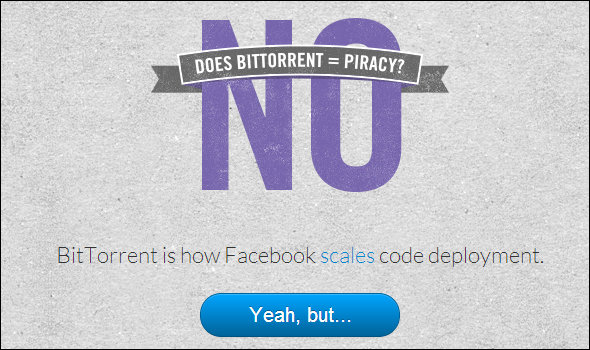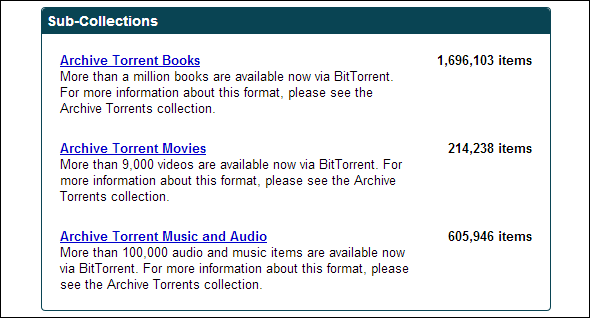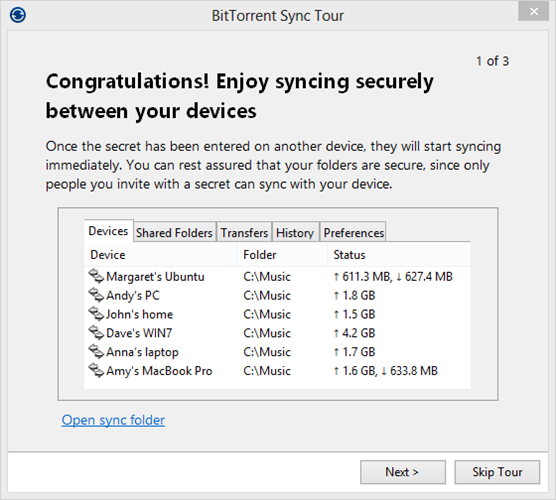8 Legal Uses for BitTorrent: You'd Be Surprised (original) (raw)
To many people, BitTorrent is synonymous with piracy. It is, after all, the technology that allows illegal services like Popcorn Time to thrive and survive.
But that isn't completely true. BitTorrent is certainly used for piracy, but it's also used for many legal things. If we banned BitTorrent tomorrow and removed it from the internet, many legitimate organizations, businesses, and content creators would have to scramble to replace it.
Like HTTP, which your browser uses to communicate with websites, BitTorrent is just a protocol. You could use your browser to download pirated content, just as you could use a BitTorrent client to download pirated content, but that isn't the only possible use.
So while BitTorrent may primarily be used for downloading unauthorized content, that's far from its only use, and the protocol still has a lot of value to people who don't pirate.
1. Game Updates and Downloads

Blizzard Entertainment uses its own BitTorrent client to download World of Warcraft, Starcraft II, and Diablo III. When you purchase one of these games and download it, you're actually just downloading a BitTorrent client that will do the rest of the work. When an update is available, the BitTorrent client built into the game's launcher automatically downloads it for you.
This allows Blizzard to save money on bandwidth and offer faster download speeds to its many players. Players can choose whether they want to contribute their upload bandwidth to speed things up for other people.
2. Facebook and Twitter Use BitTorrent Internally

Facebook and Twitter both use BitTorrent internally to move files around. Ars Technica revealed Facebook's usage of BitTorrent:
Moving a 1.5GB binary blob to countless servers is a non-trivial technical challenge. After exploring several solutions, Facebook came up with the idea of using BitTorrent, the popular peer-to-peer file sharing protocol. BitTorrent is very good at propagating large files over a large number of different servers.
BitTorrent is designed to distribute large files to multiple different computers, allowing each system to contribute some of its own bandwidth to speed up the process. This makes it useful for any situation where you want to transfer large files as fast as possible in a scalable way.
3. The Internet Archive

The Internet Archive is a non-profit organization that preserves content and makes it downloadable on the Internet. It's known for its Wayback Machine, which stores copies of websites and allows you to go back in time and relive the past. The organization also offers a huge archive of public domain media -- recordings of live concerts, eBooks, old movies and TV shows, and other audio recordings.
The Internet Archive recommends people use BitTorrent to download its content, as it's the fastest method and allows the non-profit organization to save on bandwidth costs.
4. Government Uses

In 2010, the UK government released several large data sets showing how public money was being spent. To make these available, they offered them via BitTorrent. This allowed the government to save on bandwidth costs. And, let's face it -- BitTorrent is also the fastest way to make such documents available to the largest number of people possible.
NASA has also used BitTorrent to make a 2.9GB picture of the Earth available.
5. File Syncing With BitTorrent Sync

BitTorrent, Inc., the company behind BitTorrent, recently released BitTorrent Sync. BitTorrent Sync works differently from standard BitTorrent clients. It's entirely private: you install the client, choose one or more folders to share, and then link it up with other computers. Files anyone places in their copy of the shared folder are all automatically synced with all other copies of the shared folders.
In this way, BitTorrent Sync is a lot like Dropbox. Unlike Dropbox, it doesn't store your files in a centralized server online -- it just syncs them between computers you own or computers your friends own. This means that it offers easy file sharing over the Internet and, unlike Dropbox, you can sync an unlimited number of files as long as you have the space on your computers for them.
BitTorrent Sync could be used to share pirated content, but that would be silly when pirated content is available in so many public BitTorrent streams. It's a great way to roll your own Dropbox-like service and share files across the Internet without trusting them to a central server or being limited by the size of your cloud storage account.
6. Linux ISOs
If you're familiar with BitTorrent, you'll know that BitTorrent users always say they're downloading "Linux ISOs" as a joke when they're actually downloading pirated content. This may be a common joke, but it's also a good excuse -- Linux ISOs are a common use for BitTorrent.
Whether you're downloading the latest release of Ubuntu, Fedora, Debian, or any of the other best Linux distributions, there's a good chance you're getting it via BitTorrent. These distributions offer themselves for free to everyone and they're often 1 GB or larger. BitTorrent can help them save on bandwidth costs and speed up downloads.
7. Distributing Videos and Music

If you want to make media available---perhaps you've produced a documentary and want to release it for free or you're a band that wants to release free music as a promotion---BitTorrent is one of the best ways to do it.
If you hosted the files yourself, you'd have to pay for a lot of bandwidth. If you make the files available via BitTorrent, you'd save a lot of bandwidth by letting your fans contribute their bandwidth as they downloaded your content. You'd also receive press just for making your files available via BitTorrent.
The official BitTorrent website has a list of "bundles" of music and videos artists make available to hook fans, just as radio was used to offer free music to large number of people in hopes that they'll attend live shows and buy albums.
8. Distributing Any Large Data
BitTorrent is a great way to distribute any large chunk of data as fast as possible, saving money on bandwidth. In addition to all the uses above, BitTorrent has been used to share large scientific data sets with anyone interested. Any large chunk of data that's free for anyone to access can be distributed publically with BitTorrent.
So What Does This Tell Us About BitTorrent?
If we look at the examples above, we can see that BitTorrent is very useful in several situations:
- Public distribution of data that's free for anyone to access. Whether it's public domain videos, Linux ISOs, scientific data sets, or high-resolution pictures of the Earth, BitTorrent is an effective way to distribute the content. Even Blizzard doesn't care if people use its BItTorrent clients to download its game files -- they have to authenticate online before they can play the games, so Blizzard is happy to provide its game files to anyone.
- Private distribution of data among a few trusted sources. Whether it's Facebook and Twitter using BitTorrent to update their servers or average people using BitTorrent Sync to move their personal data back and forth between their computers, BitTorrent is a fast way to leverage multiple computers' Internet connections and quickly sync data.
BitTorrent is a tool, and a particularly useful one -- that's why it's so widely used for piracy. There was piracy before BitTorrent and there would be piracy after BitTorrent if BitTorrent died tomorrow. BitTorrent also allows the Internet to be more participatory, enabling average people to share their files without paying for massive amounts of bandwidth and contribute their own bandwidth to share other people's files.
If you want to know more, find out what a torrent is and how to use it.
Image Credit: Martin Fisch on Flickr, Blue Marble via NASA